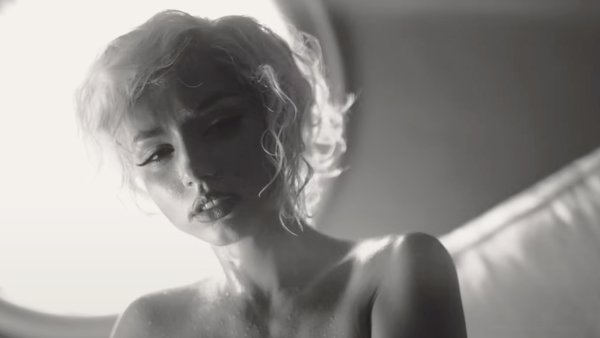Blonde Review: 7 Ups & 3 Downs
3. Andrew Dominik's Fearless Direction

Again, Blonde won't be for everyone, but Andrew Dominik is to be commended for so aggressively staying the course where his vision for this story is concerned.
If nothing else, it feels like Dominik got to make exactly the film he's had in his head for all these years, and though Netflix reportedly toyed with having Dominik cut the film down into a more palatable form, he ultimately won out.
Even if the director sometimes goes over the top, this is a film replete with smart filmmaking flourishes.
As mentioned, Dominik reimagines Monroe's life as a horror film, using unsettlingly surreal imagery to convey Marilyn's dissociation from Norma Jeane, and in one sequence even literally having Norma Jeane "conjure" Marilyn before heading onto set.
Dominik also effectively weaponises the male gaze to demonstrate how Monroe was objectified throughout her life and career, for while the film contains its fair share of nudity, little of it is shot and framed for titillation.
Right up to Blonde's terribly sad ending, Dominik is doggedly invested in demonstrating the duality of Marilyn/Norma Jeane, and while he gets no points for subtlety, his willingness to provoke the audience is exciting and refreshing in its own way.